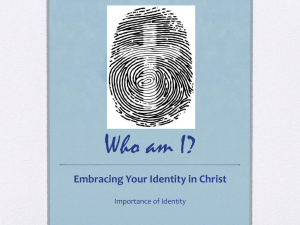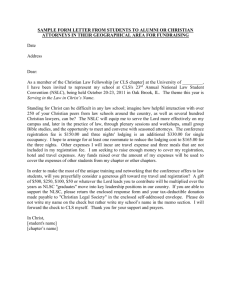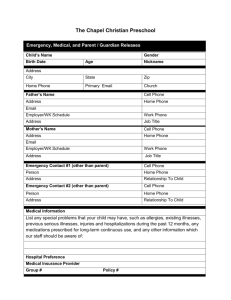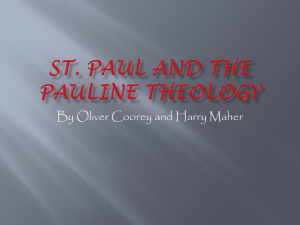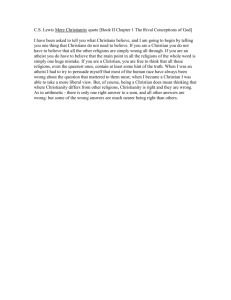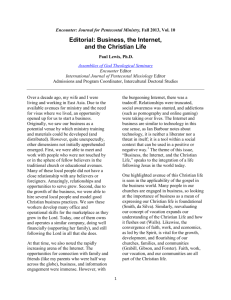ccMar31
advertisement
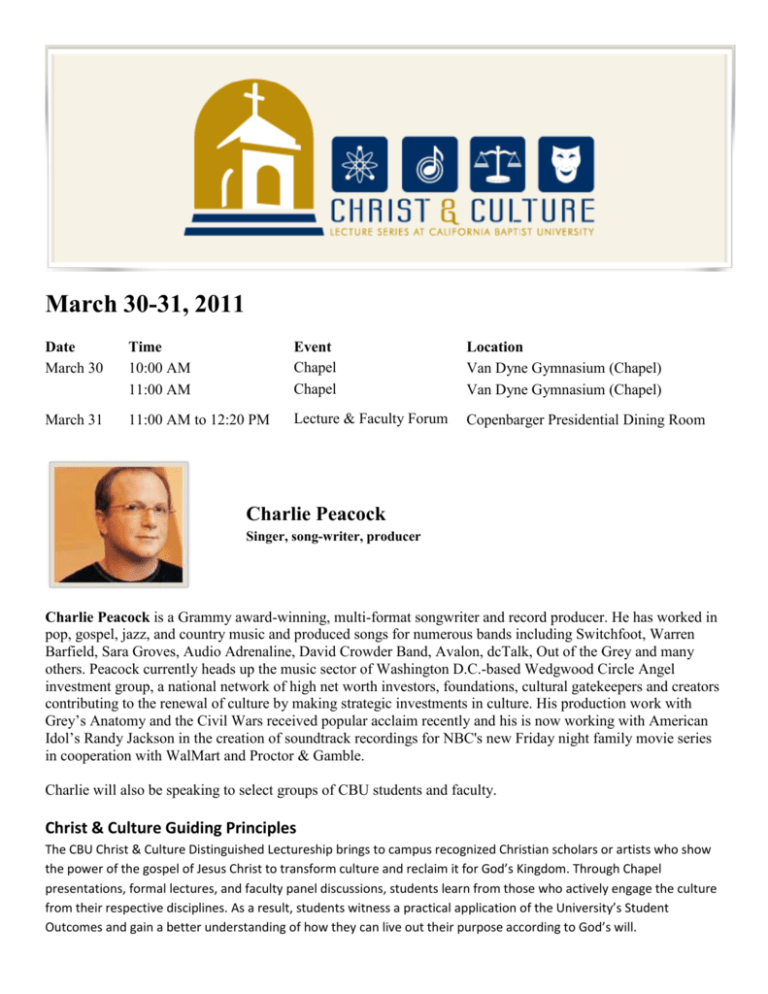
March 30-31, 2011 Date March 30 Time 10:00 AM 11:00 AM Event Chapel Chapel Location Van Dyne Gymnasium (Chapel) Van Dyne Gymnasium (Chapel) March 31 11:00 AM to 12:20 PM Lecture & Faculty Forum Copenbarger Presidential Dining Room Charlie Peacock Singer, song-writer, producer Charlie Peacock is a Grammy award-winning, multi-format songwriter and record producer. He has worked in pop, gospel, jazz, and country music and produced songs for numerous bands including Switchfoot, Warren Barfield, Sara Groves, Audio Adrenaline, David Crowder Band, Avalon, dcTalk, Out of the Grey and many others. Peacock currently heads up the music sector of Washington D.C.-based Wedgwood Circle Angel investment group, a national network of high net worth investors, foundations, cultural gatekeepers and creators contributing to the renewal of culture by making strategic investments in culture. His production work with Grey’s Anatomy and the Civil Wars received popular acclaim recently and his is now working with American Idol’s Randy Jackson in the creation of soundtrack recordings for NBC's new Friday night family movie series in cooperation with WalMart and Proctor & Gamble. Charlie will also be speaking to select groups of CBU students and faculty. Christ & Culture Guiding Principles The CBU Christ & Culture Distinguished Lectureship brings to campus recognized Christian scholars or artists who show the power of the gospel of Jesus Christ to transform culture and reclaim it for God’s Kingdom. Through Chapel presentations, formal lectures, and faculty panel discussions, students learn from those who actively engage the culture from their respective disciplines. As a result, students witness a practical application of the University’s Student Outcomes and gain a better understanding of how they can live out their purpose according to God’s will. C&C Chapel The C&C chapels will give students the opportunity to see/hear Christian scholars and/or artists who, through active engagement of culture, show the power of the gospel of Christ to transform and reclaim culture for God’s Kingdom. C&C Lecture The format of C&C is transitioning to a more interactive and interdisciplinary event; it is hoped that faculty will be encouraged to move class sessions to the formal lecture. The guest speaker will present a lecture related to the interaction of Christians in culture, followed by a faculty panel discussion and then time for Q&A. The effort is to make the lecture more applicable to a wide variety of students and disciplinary interests—creating many points of contact between the faculty’s class, content and the Christ and culture issue. C&C Faculty Forum with Q&A A faculty panel discussion at the end of the lecture o o o Panel should include faculty members from diverse departments to comment on the lecture from their particular discipline (2011 panel includes Dr. Philip Miller [Music], Dr. Natalie Winter [Business], Dr. Brett Biermann [Film/English], and Dr. Jeff Mooney [Biblical Studies]. This fosters more participation from faculty and develops the “interdisciplinary” emphasis that the Christ and Culture Lecture Series is designed to encourage. This will also encourage faculty to move class sessions to the lecture because it will be academically beneficial and it will also help with attendance—something that has been a problem in past lectures. Please consider giving incentive to students for attending. C&C Guest Speakers The criterion for speakers emphasizes how a person represents living the Great Commandment in his/her discipline. For example, What does it look like to be a Christian economist? or How does one do economics Christianly? Keeping in mind C.S. Lewis’ idea, The second thing to get clear is that Christianity has not, and does not profess to have, a detailed political program for applying “Do as you would be done by” to a particular society at a particular moment. It could not have. It is meant for all men at all times and the particular program with suited one place or time would not suit another. And, anyhow, that is not how Christianity works. When it tells you to feed the hungry it does not give you lessons in cookery…It was never intended to replace or supersede the ordinary human arts and sciences: it is rather a director which will set them all to the right jobs, and a source of energy which will give them all new life, if only they will put themselves at its disposal….Christians—those who happen to have the right talents—should be economists and statesmen…and that their whole efforts in politics and economics should be directed to putting “Do as you would be done by” into action…The application of Christian principles, say, to trade unionism or education, must come from Christian trade unionists and Christian schoolmasters: just a Christian literature comes from Christian novelists and dramatists—not from the bend of bishops getting together and trying to write plays and novels in their spare time (Mere Christianity, book 3, chapter 3).

